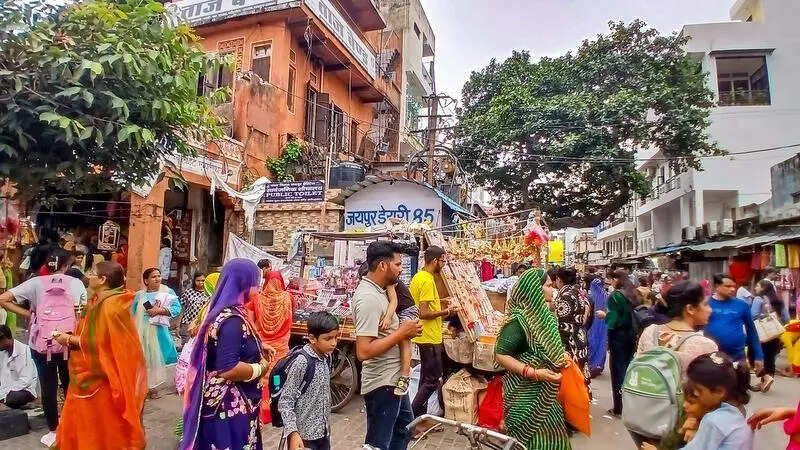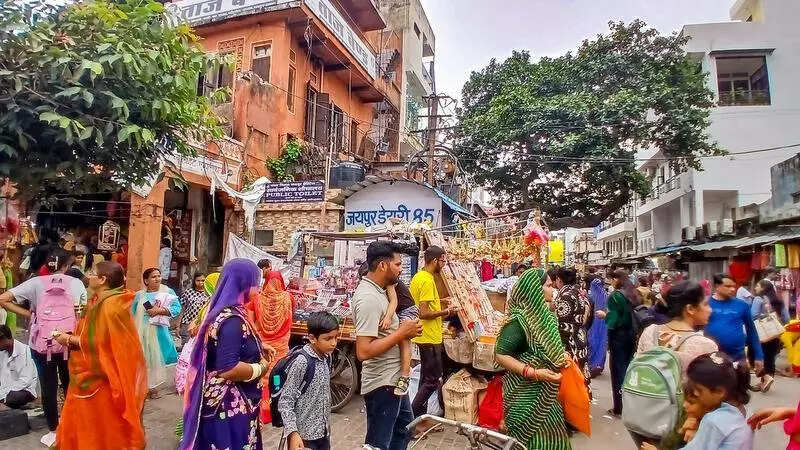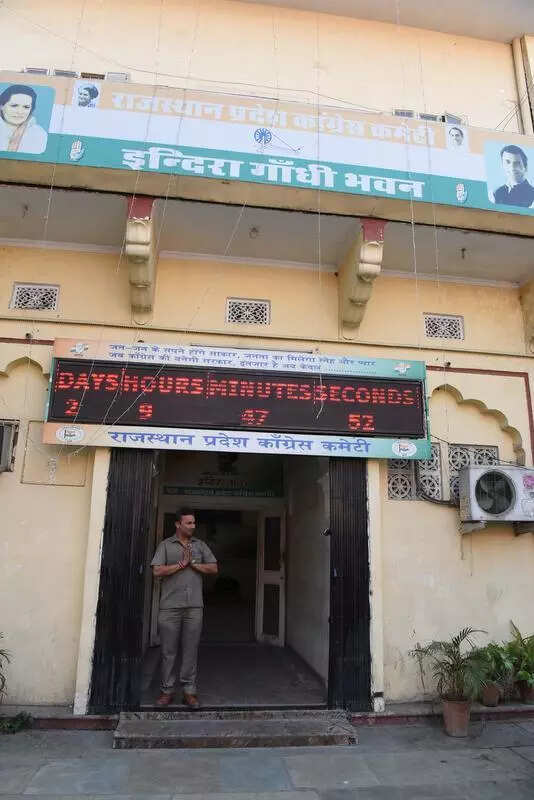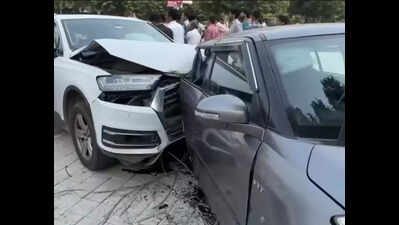Jaipur: In the heart of Jaipur’s historic Walled City, where vibrant bazaars burst with colour and culture, a glaring contradiction exists. While women make up the majority of shoppers and tourists in these bustling markets, they face a daily struggle that few notice: safe and accessible public toilets. Even so, authorities at the civic bodies and the tourism department boast of the city being tourist-friendly.From Tripolia Gate to Chhoti Chaupar, not a single functional public toilet exists for women. This is despite the area being dotted with shops selling women’s clothing, bangles and bridal wear.In Maniharon Ka Rasta, known for its handcrafted lac bangles, 65-year-old shop owner Shabnam Kauser says, “I have been working at this shop for over 50 years but there has never been a toilet for women. I have to walk 700 metres to my house just to use one. Sometimes I hold it in for over three hours, which has begun to affect my health.”Her brother adds, “Many women customers request us to suggest a toilet nearby. We try sending them to a nearby Jain temple but the priests often argue and ask us not to send anyone there.”Atish Market, close to the iconic Hawa Mahal, has a public toilet but it not only lacks cleanliness, the sanitary napkin vending machines there are non-functional. The situation is the same in Khejron Ka Rasta—public urinals for men are right at the entrance, but for women, finding a toilet means wandering through narrow lanes. And even when they find one, it’s filthy.Khazane Walon Ka Rasta, famous for bargain shopping, does have a public toilet near the main road but it is almost invisible. The entrance is hidden behind illegal street vendors and dangerously close to an open transformer.Tipu Kanwar, who works at a garment shop just across the toilet, says, “The toilet is there but a transformer in front of it exploded just six days ago. Now it’s covered but most days you can’t even see the ‘women’ sign on the wall because hawkers block the view.”Further ahead, in Purohit Ji Ka Katla, another bridal shopping hub, the scene is just as bleak. Most shopkeepers advised against using the nearby toilet, citing unbearable stench and lack of maintenance. Even the one inside Diggi Katla, built by JMC-Heritage, has not been cleaned in months – according to shopkeepers who sit next to it.In Bapu Bazaar, the only accessible public toilet is near the Saraogi Mansion. For a market brimming with tourists, especially women, this speaks volumes. Suresh Saini, vice-president of the market traders’ association, said, “We’ve complained to JMC-H multiple times. They simply counter-question, saying, tell us where to build (toilets)? If that’s the approach of civic officials, neither customers will come, nor will businesses survive for long.“Commissioner of JMC-H, Nidhi Patel, said, “We have not received any complaints about toilet shortages for women. We did get complaints regarding poor cleanliness. We’ve held meetings with Sulabh to address this issue. They have been asked to focus more on tourist areas.”
Neglected Necessity: Public toilets for women in Walled City markets | Jaipur News





